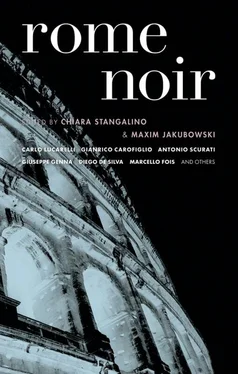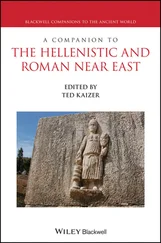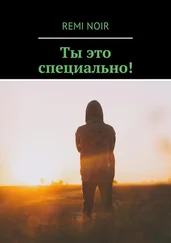Джанрико Карофильо - Rome Noir
Здесь есть возможность читать онлайн «Джанрико Карофильо - Rome Noir» весь текст электронной книги совершенно бесплатно (целиком полную версию без сокращений). В некоторых случаях можно слушать аудио, скачать через торрент в формате fb2 и присутствует краткое содержание. Город: New York, Год выпуска: 2009, ISBN: 2009, Издательство: Akashic Books, Жанр: Детектив, на английском языке. Описание произведения, (предисловие) а так же отзывы посетителей доступны на портале библиотеки ЛибКат.
- Название:Rome Noir
- Автор:
- Издательство:Akashic Books
- Жанр:
- Год:2009
- Город:New York
- ISBN:978-1-933354-64-4
- Рейтинг книги:3 / 5. Голосов: 1
-
Избранное:Добавить в избранное
- Отзывы:
-
Ваша оценка:
- 60
- 1
- 2
- 3
- 4
- 5
Rome Noir: краткое содержание, описание и аннотация
Предлагаем к чтению аннотацию, описание, краткое содержание или предисловие (зависит от того, что написал сам автор книги «Rome Noir»). Если вы не нашли необходимую информацию о книге — напишите в комментариях, мы постараемся отыскать её.
Rome Noir — читать онлайн бесплатно полную книгу (весь текст) целиком
Ниже представлен текст книги, разбитый по страницам. Система сохранения места последней прочитанной страницы, позволяет с удобством читать онлайн бесплатно книгу «Rome Noir», без необходимости каждый раз заново искать на чём Вы остановились. Поставьте закладку, и сможете в любой момент перейти на страницу, на которой закончили чтение.
Интервал:
Закладка:
Perosino studied the two figures at the back of the room, then gestured for D’Anna to continue.
“What we cannot explain, apart from the nature of these visions, is their content. The atrocities described by Mr. McKenzie do not at all resemble the gladiator matches...”
Angelo Perosino shook his head, visibly annoyed by the man’s ignorance. “You see, sir, on any given day of the spectacles, in addition to the actual skirmishes between gladiators that took place in the afternoon, the Colosseum presented animal hunting and fighting during the morning program. The beasts were brought to Rome from every corner of the Empire and, sometimes in the space of a few hours, hundreds of them were exterminated. Furthermore, the scenes of torture described at the end of the story recall the executions of murderers, fugitive slaves, Christians — spectacles that filled the interval between the morning and afternoon programs. During the break between the venationes — the animal hunts — and the gladiator duels, while the populace feasted in the stands and the well-to-do left to go eat in taverns, some were slaughtered. Just like that, to pass the time.”
“Are you telling us, then, that the hallucination experienced by Donald McKenzie corresponds to the scientific knowledge we have in our possession about what took place in the Colosseum in the days of ancient Rome?”
“Absolutely,” Perosino decreed, hoping to be able to regain his freedom this way. “A philologically correct hallucination, I would say.”
As Angelo Perosino was escorted out, he noticed that the two individuals in dark suits were whispering animatedly to one another. They appeared to be in open disagreement about a matter of utmost importance. The man was arguing with barely contained passion in favor of some hypothesis, while the woman responded with cold, decisive gestures of denial. The researcher managed to catch only a few words, spoken loudly by the man, who was obviously vexed by the woman’s dissent.
“...remote viewing... remote viewing,” he nearly shouted at her, taking off his dark glasses for the first time.
II
Angelo Perosino had been wandering for hours among the ruins of the Colosseum along with the two mysterious individuals who had introduced themselves to him as Agent Stone and Agent Miller, obviously fake names. A telling incident had reinforced the young scholar’s conviction that they were agents of the CIA. After a brief huddle with the Italian police stationed around the metal detector at the entrance to the Colosseum, the weapons that both Miller and Stone carried in underarm holsters had been returned to them. And so Perosino found himself acting as guide to two armed agents in what remained of the largest theater of antiquity, a structure built with the blood of tens of thousands of slaves on two imaginary axes of 188 and 156 meters, for an overall perimeter of 527 meters.
As they wandered among crowds of tourists in shorts and bogus Roman centurions in cheap costumes posing for pricey souvenir photos, Perosino could not help mentally reviewing the information about “remote viewing” that he had acquired on the Internet. A brief search had been enough to discover that the term referred to a variety of techniques and protocols used to produce and control extrasensory perceptions. In remote-viewing phenomena, it was believed that a “viewer” could acquire multisensory information on an object situated anywhere in space and time without having previous knowledge of it. The pseudo-scientific explanations for these parapsychological phenomena referred to the alleged ability of the individual consciousness to connect to a supposed “matrix,” a field of pure information, which, like the realm of the mythical ether, is said to be found beyond the illusory space-time continuum that we conventionally call “reality.” A conceptually elaborate form of clairvoyance, whose scant credibility had, however, been reinforced by a top secret project financed by the American government during the Cold War years. The project, initially launched in the early 1970s with the name Stargate, under the supervision of the United States Army Intelligence and Security Command (INSCOM), was intended as a response to experiments that had been performed by the Soviets with clairvoyants, psychokinetics, telepathics, and child prodigies in support of espionage and counter-espionage activities and security systems associated with them. Later, the project passed to the control of the CIA, under the name SCANATE, and then, in the mid-’90s, was shut down. This according to official versions. But on the many websites devoted to these topics, fans of parapsychology claimed that, following the attacks of September 11, research in the United States had resumed, with even more advanced and more covert protocols and projects.
Angelo Perosino was almost run over by a small horde of ecstatic Japanese tourists on a photographic safari. The more the researcher contemplated the reasons he found himself at the Colosseum on a muggy August day, the more they seemed like a load of nonsense. Instinctively, he turned his back to the arena and directed his gaze toward the exit. A hand gently harpooned his right forearm. Agent Miller, beautiful and icy as always in her mannish Armani suit, was staring straight ahead at the stands on the other side of the arena.
Surrounded by a small group of fellow travelers who were making useless attempts to reassure him, a man of sturdy build, apparently terrified, was shouting as if possessed and pointing to a spot in the middle of the arena where, two thousand years earlier, gladiators had duelled to their deaths. In that spot, only a mound of dusty soil parched by the August sun could now be seen.
“Iu-gu-la! Iu-gu-la! Iu-gu-la!”
Seventy thousand people were shouting in unison, chanting the invocation with a hypnotic three-syllable rhythm. As if with one voice, seventy thousand men, women, old people, and children, of all social classes, turned to the Emperor’s dais and let the guttural sounds rise up in that single voice. A hoarse voice. The stands of the Colosseum had been sprayed with a mixture of water and wine spiced with aromatic essences, and the sweet fragrance of saffron was married to the acrid odors of sweat and blood.
In the center of the arena, a man kneeling in utter despair awaited death, his torso bare, his muscular arms hanging loosely at his sides, his head thrown back to offer up his throat, eyes closed and mouth gaping. Until just a few seconds earlier, the man had fought vigorously. He had challenged, attacked, and threatened his adversary. He had even mocked him, displaying his genitals with the hand that gripped the sword. Now he was offering the second man his throat. He knelt before him like an object discarded in the dust.
After kicking aside the double-edged sword, the long rectangular shield, and the broad-visored helmet taken from the defeated man, the victor stood towering over him. He was bare-chested as well, and wore leg pads up to his thighs to protect his lower limbs; in his left hand he gripped a small round shield; in his right, a short, curved sword, like a dagger. His features were hidden by a helmet that covered his entire face, leaving only two small openings for the eyes. The victor raised the blade of the curved dagger to within a few inches of his own nose, as if a bestial myopia drove him to smell the adversary’s blood on the weapon that would kill him. The crowd worshipped him. He reciprocated, hardening into the unmoving madness of a stone idol.
“Iu-gu-la! Iu-gu-la! Iu-gu-la!”
Everything remained fixed for a few interminable seconds — the despairing defeated man, the exalted victor, the ululating public — a moment suspended in time as in a horrific infinity. Then, suddenly, that picture of unyielding savagery came to life again. The Emperor rose from his throne and held his arms out before him as if to embrace the entire amphitheater. A silence fell. Absolute. The most powerful man on earth, who could dispose of anyone in that arena however he wished, turned to the people, taking their views into consideration. At that moment, even the lowest of the excrement-befouled plebeians could express an opinion. The decision depended on him as well. He, too, was called upon to decide life or death. The Emperor radiated divine power, shedding it over everyone in the Colosseum. The people would be part of the spectacle, would descend into the arena and decide the match.
Читать дальшеИнтервал:
Закладка:
Похожие книги на «Rome Noir»
Представляем Вашему вниманию похожие книги на «Rome Noir» списком для выбора. Мы отобрали схожую по названию и смыслу литературу в надежде предоставить читателям больше вариантов отыскать новые, интересные, ещё непрочитанные произведения.
Обсуждение, отзывы о книге «Rome Noir» и просто собственные мнения читателей. Оставьте ваши комментарии, напишите, что Вы думаете о произведении, его смысле или главных героях. Укажите что конкретно понравилось, а что нет, и почему Вы так считаете.












